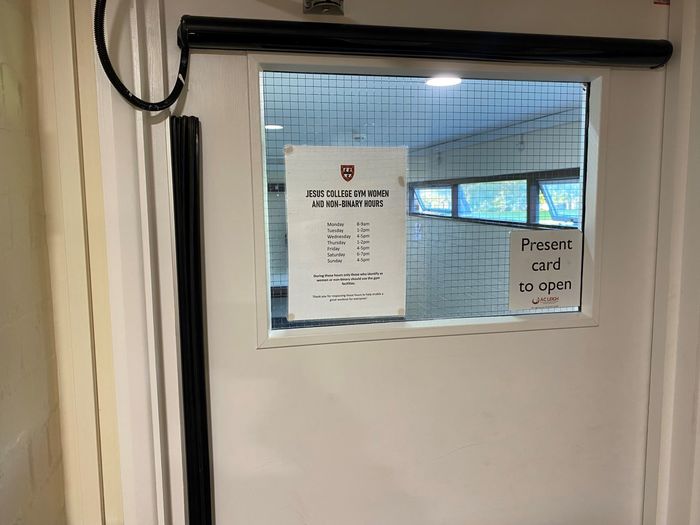The empowering history of Cambridge’s neurodiversity
While there are inarguable difficulties facing neurodivergent individuals at the University, there is comfort to be found in its neurodiverse legacies, argues Jack Marley

Being autistic at Cambridge is undeniably hard. I’ve spoken to many here — both socially and in my capacity as undergraduate Disabled Students Officer at Pembroke — about their experiences of being autistic, neurodivergent, and/or otherwise disabled. Each story is unique, but there are running themes of struggle, frustration, and burnout. I consider myself lucky to have avoided the worst of how Cambridge can treat this portion of its student body. Nonetheless, it took me months to recover from a crushing burnout at the end of my first year. I was also shocked to be rebuked by my tutor that I “won’t get accommodations in the real world” when seeking support towards getting a room suited to my needs. This is indicative of a continued lack of understanding and acceptance in certain parts of the University, chiming with similar remarks made to others in similar situations.
“I draw strength from the knowledge that I am not the first and will certainly not be the last autistic person to pass through this university”
Something that has helped me feel empowered in the face of these challenges is connecting with the rich history of neurodiversity at Cambridge. This is an institution through which countless generations have passed, shaping a long and complex history. A vital part of this is the many students and academics who would likely be considered autistic or otherwise neurodivergent today. By its nature, this part of the university’s history will sadly never be fully revealed to us. Steve Silberman provides a tantalising glimpse into it, though, in his seminal study of the history of autistic individuals and communities, NeuroTribes: The Legacy of Autism and the Future of Neurodiversity. In the book, he discusses the scientist Henry Cavendish and mathematician Paul Dirac through anecdotal and archival evidence, highlighting recognisably autistic traits and behaviours in their lives. Another connection is that they both studied at Cambridge. Indeed, they both have buildings named after them, the Cavendish Laboratory and the Dirac Building in St. John’s Innovation Park, which is a particularly tangible legacy to have on the University.
These are just two examples, and one can debate the value of retrospectively assigning a label to those who lived long before it was officially defined. It does suggest, however, that Dirac and Cavendish are just the tip of the iceberg that is the rich history of neurodivergent thinking in this university. Statistically speaking there has to be, but more meaningfully is that there are aspects of life here that can allow autistic people to flourish, even if there are many others achieving the opposite effect. Like me, Cavendish and Dirac likely appreciated the preponderance of routines and rituals, thriving on the emphasis on hyper-focused learning and specialism and on sensorially regulated collegiate environments. When I’m tucked away in the library surrounded by a satisfyingly huge stack of books, taking a quiet moment to soothe myself in the college chapel, or going on a peaceful late-night walk amongst the historic architecture, I imagine the many others lost to history who have done the same, and feel a great comfort.
One of the many joys of living at Pembroke is that most days I find myself walking past the original Cavendish Laboratory site on nearby Free School Lane. It’s such a wonderful testament to the legacy of Cavendish’s (likely-)autistic world-view, and reminds me to keep faith in the value of my own. As I’ve become more comfortable with this part of my identity — in part thanks to the connection I’ve developed with the environment here — I feel better equipped to negotiate the barriers I come across. I know I’m not wrong for needing accommodations to succeed, regardless of what my tutor might think; nor is time spent resting and recuperating a failure to make the most of being here, whatever the culture of constant overcommitment convinced me in my first year.
“I imagine the many others lost to history who have done the same, and feel a great comfort”
By no means do I intend to sugar coat the experience of being autistic at this institution, nor discredit the real problems faced by many. The two can co-exist. I strive to play my small part in holding Cambridge accountable to improving the treatment of its disabled community. I also draw strength from the knowledge that I am not the first and will certainly not be the last autistic person to pass through this university and (hopefully) make my mark. Though it sometimes seems a small consolation, taking an occasional moment to remind myself, reconnect, and step out of the constant rush of the day-to-day has been a really powerful act across my time here.
 Music / The pipes are calling: the life of a Cambridge Organ Scholar25 April 2025
Music / The pipes are calling: the life of a Cambridge Organ Scholar25 April 2025 Arts / Plays and playing truant: Stephen Fry’s Cambridge25 April 2025
Arts / Plays and playing truant: Stephen Fry’s Cambridge25 April 2025 Comment / Cambridge builds up the housing crisis25 April 2025
Comment / Cambridge builds up the housing crisis25 April 2025 Interviews / Dr Ally Louks on going viral for all the wrong reasons25 April 2025
Interviews / Dr Ally Louks on going viral for all the wrong reasons25 April 2025 News / Candidates clash over Chancellorship25 April 2025
News / Candidates clash over Chancellorship25 April 2025






